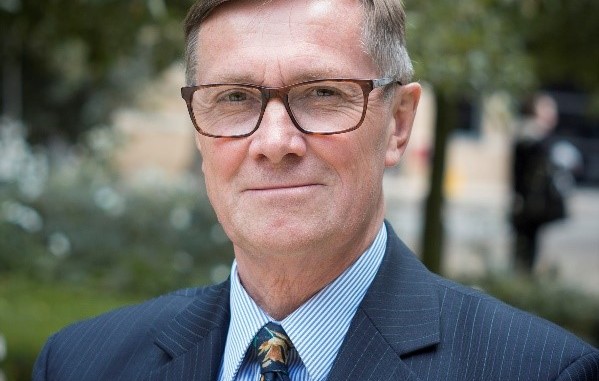
In this post, Professor Peter Littlejohns, the ARC’s public health theme lead argues that we need to agree principles, define processes for local prioritisation and have clear clinical protocols for staff to ensure that the NHS is fair to all in the months to come.
The NHS has always had to prioritise its services, as clinical need across the population often exceeds the NHS’s capacity to deliver. But the speed of the Covid-19 pandemic means that in the coming months the NHS will have to prioritise like it has never done before in its history and at all levels. This process has already begun with the announcement that all routine surgery is to be cancelled for three months. These are high-level decisions made at the national level. However, if local hospitals and intensive care units (ITUs) become full, as is predicted, then clinicians and managers will need to prioritise at an individual patient level. The government measures on social distancing are seeking to minimise the risk of this happening by flattening the epidemic curve. In recent days, these have been tightened as voluntary measures were not working. As Daniel Sokol, a barrister and medical ethicist says in the BMJ, we all have moral obligations in a pandemic.

While the current emphasis is still on minimising the pressure on the NHS, public scrutiny will soon switch to the NHS itself. Stories are already circulating about shortage of ITU beds and at least one Trust CEO is setting up an ethics support system to help make difficult decisions. France has already announced that it is establishing “ethical support units” to support the predicted tough local prioritisation decisions.
Because of the coronavirus’ propensity to affect the lungs, ventilators are seen as a crucial indicator of preparedness and all efforts are being made to increase the number in NHS hospitals. This includes a team of engineers and medics at King’s College London, who are working with colleagues at Oxford to develop a prototype for a rapidly deployable ventilator (KCL news story and interview in The Face magazine).
In Italy, a shortage of ventilators has been a problem and guidelines have been developed to try and maximise the impact of those available. They have been controversial because age has been used as a criteria and has apparently been set as low as 65 years in some areas. Of course, guidelines for prioritising healthcare use in times of scarcity are not new, and many have been developed in preparation for flu epidemics. Some can be very comprehensive, going into the detail of specific patients and time sheets.
Most highlight contested ethical dilemmas. For example, the guidance in New York developed in 2015 in preparation for a flu pandemic raised the possibility of taking people off ventilators early if there are other patients who could benefit. Recent reports suggest that New York is close to having to implement this guidance.
In his second BMJ ethics blog, Daniel Sokol specifically addresses ventilator ethical challenges. While discussing the fairness of ‘first-come, first-served’ principles, he advocates allocation on the basis of those most likely to benefit, emphasising that while ethical principles are important, they need to be translated into practical tools for busy clinicians to use. Sokol goes as far as advocating being very precise with scoring systems. He finishes with:
Whatever conclusions are reached about the fair allocation of limited resources, they must be communicated to members of the public in advance of any crisis. To do otherwise might lead to panic and protests at the worst possible time, when hospitals are under extreme pressure.
Involving the public in making difficult decisions was a key conclusion from our CLAHRC South London research on fair commissioning of health care.
But getting people to explore these issues as a citizen, rather than as a patient is challenging. Doing this, in the timescale required, and abiding by social distancing guidance, without causing alarm is going to be very difficult, but needs to be addressed now. The ARC will be considering – along with others interested in maintaining the important contribution of patient and public involvement (PPI) to research, policy and practice – how best to work together going forward in such a rapidly changing landscape.
NICE has just published critical care guidelines that have been produced in collaboration with NHS England and a cross-specialty clinical group, supported by the specialist societies and Royal Colleges. The NICE guidance does not categorise potential patients for critical care by age, but instead asks doctors to score patients on a nine-point ‘clinical frailty scale’.
But already these have caused controversy as they were considered discriminatory to people with disability. Clarification has subsequently been issued by the Specialised Clinical Frailty Network that:
…the CFS has not been widely validated in younger populations (below 65 years of age), or in those with learning disability. It may not perform as well in people with stable long-term disability, such as cerebral palsy, whose outcomes might be very different compared to older people with progressive disability. We would advise that the scale is not used in these groups. However, the guidance on holistic assessment to determine the likely risks and benefits of critical care support, and seeking critical care advice where there is uncertainty, is still relevant.
NICE has said that this will be reflected in an updated version of its guidance.
There is also new guidance for social care services being produced, which the ARC’s social care theme is helping to inform. Professor Jill Manthorpe, who leads the theme, has led a rapid review for the Department of Health and Social Care of international social care policies and regulations responding to COVID-19.
All of these guidelines will only deliver fair decision making if they are implemented consistently across the country and still need to be interpreted on a patient-by-patient basis. This means having locally relevant protocols that have been developed in an open and inclusive manner though a rigorous process. Staff will need to be trained in their use and supported when the tough decisions are being made.
To explore the ethical challenges that we are facing I have re-convened the UCL / King’s College London Social Values Group and initiated a discussion group to explore these issues. Already the discussions have highlighted ethical dilemmas, and the tough choices that will have to be made. A set of principles and examples is emerging that we hope will assist clinicians as they care for those suffering with Covid-19.
We are all facing a unique situation. We need to base our healthcare decisions on what has been shown to work, that saves lives and is ethically sound – this applies to individuals, the health service and governments.

Leave a Reply